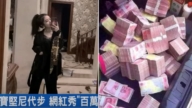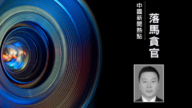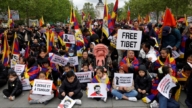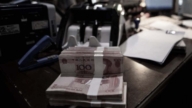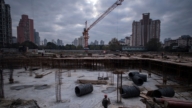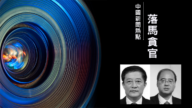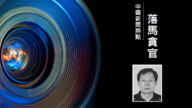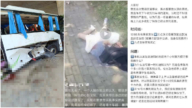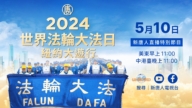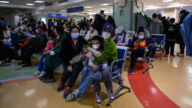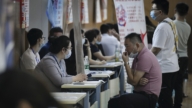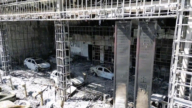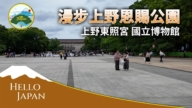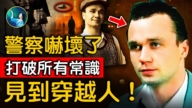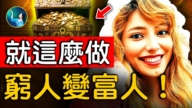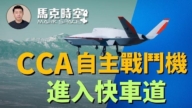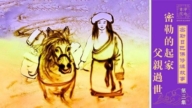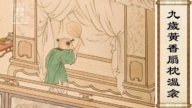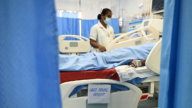【新唐人2012年12月15日讯】在中共“十八大”会议上,才当选为中央委员的大陆四川省委副书记李春城,被撤销了职务,但当局没有透露李春城违纪的情节。李春城是中共新领导人习近平上台后,“因腐败而下马”的最高级别官员。有评论指出,如果李春城反腐案继续审查下去,中共整个腐败体制会因此“牵一发而动全身”。
中共喉舌《新华社》报导,四川省委副书记李春城,因为严重违纪遭到免职,但没有透露李春城违纪情节。
李春城在11月的中共第18次全国代表大会才当选中央候补委员,不料在“十八大”后就出事,他也是“十八大”后落马官员中层级最高的。
中国历史学家李元华:“(李春城)这一次在十八大之前仍然被重用,可能跟周永康的势力对他(李春城)的庇护有关,十八大之后,我想习、李要有个反弹,那么也要找个合适的下手,我想中共的权斗方面有一个特点,他们的手里其实都握有对方贪腐的材料,只不过就是何时下手。”
李春城遭中纪委调查后,传言四起,外界报导,怀疑李春城涉数十亿人民币的成都房地产开发案,也有报导指称,李春城以高价卖官方式疯狂敛财。
外界分析,李春城被中共新一届领导做为“反腐”典型开刀,也是清理江派周永康残余势力的指标。
李元华:“习近平上台以后要做出一个姿态,一个是可以捞取民心,再一个也可以打击政敌,再有一个还可以威摄那些还没向他效忠的人。”
时政评论员华颇认为,这是中共不同的利益集团之间的拼杀,习近平用“反腐”的名义来打击对手。
时政评论员华颇:“我认为是一种反腐秀,因为习李上台要收揽民心,要以腐败为突破口,所以,以反腐打倒李春城副部级高官,立竿见影的效果。”
12月6号,报导证实李春城遭受调查后,12月9号,有成都市民上街举牌,高喊“不杀李春城不平民愤”,并且呼吁继续找出他的同党。
12月10号下午,成都各区县维权代表共23人,集体进京递交呼吁信,并揭露李春城团伙的腐败,要求当局严惩李春城在执政时期所犯下的罪行。
华颇表示,如果李春城反腐案继续审查下去,那么,所牵连的人数恐怕超出想像。
据大陆媒体报导,由于李春城大搞“建设工程”与“四处拆迁”,而被人冠以“李拆城”的外号。据统计,李春城的问题多与“土地”、“工程建设”、“拆迁”等有关。
另外,报导说,2003年,李春城担任成都市市委书记以后疯狂卖官,导致成都刮起买官卖官之风。
报导还引述现任成都市金牛区区委常委申勇揭露的事件指出,李春城的妻子曲松枝,随李春城到成都时,在某医院当勤杂人员,李春城担任成都市市委书记后,成都市卫生局专门设立“科教处处长”一职并委任她。“512汶川大地震”后,“成都红十字会”因接收天量捐款成了最热门单位,3个月后,曲松枝又被任命为“成都红十字会副会长、常务副会长”,一年后,又用各种手段逼迫一把手辞职,而坐上一把手交椅,开启了“成都红十字会”的腐败序幕。
华颇:“我想中共查的级别就到李春城为止,再往上,中共是不愿意再牵动更大的人物出来了,因为中共是靠各级的官吏,党员干部来统治中国的,如果牵扯那么多人进去,也会对中共的执政根基造成重大的冲击。”
有评论认为,当一个国家的“集团性腐败”普遍存在时,就一定是制度出了大问题。因为腐败的“集体性”,人人都是“违法者”,一旦反腐机器启动,腐败单位就会结成上下一致的“攻守同盟”,让“反腐败”工作最终半途而废。
采访/李韵 编辑/黄亿美 后制/郭敬
Removal of Li Chuncheng: An ‘Anti-Corruption’ Show
Li Chuncheng was removed from his role as deputy Party-
chief of Sichuan Province for “serious discipline violations".
Li was the newly elected Central Committee member of
the Chinese Communist Party (CCP)—authorities have not disclosed the case details yet.
Li Chuncheng is the highest-level official axed for corruption
after Xi Jinping’s coming into power.
Commentators say that if the probe on Li Chuncheng’s case
deepens, the corrupt CCP’s entire system will be affected.
CCP mouthpiece, Xinhua News Agency, reported on
Li Chuncheng’s dismissal as Sichuan’s deputy Party-chief.
The report said Li Chuncheng was charged on serious
violation of the Party discipline, but did not disclose details.
Li was newly elected as the alternative member of the CCP
Central Committee at the18th Party Congress in November.
He was unexpectedly removed from office soon after
the meeting ended, becoming the highest-ranking official to be sacked since the congress.
[Li Yuanhua, Chinese Historian]: “Li Chuncheng was
still promoted as ruling elite at the18th Party Congress,
indicating that he may be under the shield
of Zhou Yongkan’s forces.
After the CCP’s congress, Xi Jinping and Li Keqiang would
retaliate, finding an appropriate object to begin with, I guess.
The CCP’s infighting has a characteristic—they all hold
evidence on their opponents’ corruption but don’t know when is the best time act.”
Rumors on Li Chuncheng spread widely after the CCP
Central Discipline Inspection Commission sorts an inquiry.
Media reported that Li was suspiciously implicated in
multi-billion yuan real estate projects in Chengdu
and that he franticly collected money
by selling official positions at high prices.
Media say the new CCP leadership team had axed Li,
taking his case as exemplary in the “anti-corruption drive”.
The action is also purging the remnants of those forces
who are under the lead of Jiang Zemin and Zhou Yongkang.
[Li Yuanhua, Chinese Historian]:
“Xi Jinping has to take some acts after taking the reign.
That’ll help him to gain public support and strike out against
political opponents and it can also deter those who haven’t pledged their loyalty to him yet."
Critic Hua Po views it as an internal battle
among the CCP’s different interest groups.
Hua says, Xi Jinping is striking out against his opponents
under the cover of anti-corruption.
[Hua Po, Critic]: “I think the ‘anti-corruption’ is a show,
because after taking office,
Xi and Li need to win the people’s support
and they see fighting corruption as a breakthrough.
So the blow on Li Chuncheng, a vice-ministerial level official,
has produced an immediate effect."
Reportedly, on December 9 after Li Chuncheng was probed,
Chengdu citizens took to the streets holding placards
and chanting slogans like, “Public wrath cannot be appeased
without the execution of Li Chuncheng.”
Demonstrators appealed for an investigation to identify more
of Li’s accomplices.
On December 10, 23 rights-defense representatives from
across Chengdu submitted an appeal letter to Beijing.
The letter exposed corruption by Li Chuncheng’s gang
and called for severe punishment to be applied.
Hua Po says, if Li Chuncheng’s case deepens,
the number of implicated officials will exceed expectations.
Zhgpl.com says Li Chuncheng has been given the nickname
“city-demolition Li” for causing construction projects to boom and property demolition rates to increase.
Reportedly, Li was suspected of getting involved mainly in
land related issues, construction projects, and demolitions.
In 2003, during his tenure as Party-chief in Chengdu,
Li Chuncheng had wantonly sold official positions for money.
His actions had aroused a storm of buying and selling
of office in Chengdu’s officialdom.
Media reported that after Li Chuncheng had taken office
as Chengdu’s Party-chief, the city’s health authorities had set up a post specifically for Li’s wife.
Li’s wife went from doing odd jobs, to becoming the director
of the Science & Education Department.
After the 2008 Wenchuan earthquake, Chengdu’s Red Cross
received huge amounts of donations, becoming the most popular work unit.
3 months later, Li’s wife was appointed as deputy president
and executive vice president of the Chengdu Red Cross.
1 year later, she took the top seat after forcing the former
leader to resign.
Since then, the Chengdu Red Cross has been infamous
for its corruption scandals.
[Hua Po, Critic]: “I believe the CCP’s investigation
will end at Li Chuncheng,
at this official ranking—the regime isn’t willing to pull out
any of the higher-level figures.
If more officials were to be exposed, that would cause
a significant impact on the CCP’s ruling."
Media commented that, when a country sees collective
corruption everywhere, its establishment is sure to go wrong.
The collectivity of corruption means that everyone involved
is in some way breaking the law.
Once the anti-corruption drive is initiated, the corrupt
Party agencies will likely form a pact to shield each other
and the ‘anti-corruption’ initiative would give up halfway.


